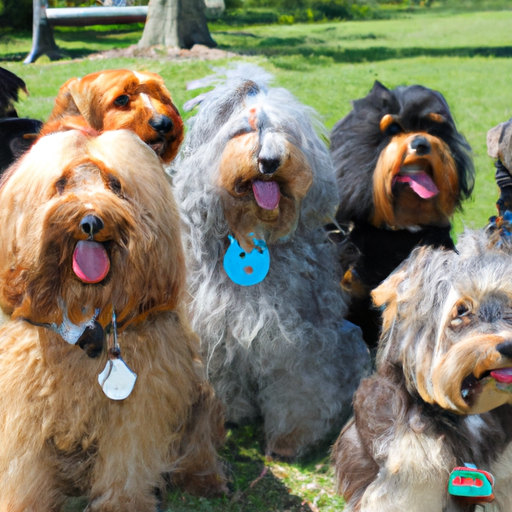In the realm of pet ownership and animal companionship, a hypoallergenic dog has become a popular term. But what exactly does it mean? Simply put, a hypoallergenic dog is one that is less likely to cause an allergic reaction in people who are sensitive to dogs. They shed less, produce fewer allergens, and are generally considered to be a good choice for people with allergies or asthma.
Table of Contents
- Understanding Allergies and Dogs
- Hypoallergenic Dogs: A Closer Look
- Popular Hypoallergenic Dog Breeds
- Caring for a Hypoallergenic Dog
- Frequently Asked Questions
Key Takeaways:
- Hypoallergenic dogs produce fewer allergens and are less likely to cause an allergic reaction.
- Not all dog breeds are hypoallergenic.
- Proper care and grooming are essential to maintain the hypoallergenic properties of these dogs.
Understanding Allergies and Dogs
Before we dive deeper into what a hypoallergenic dog is, it’s important to understand what causes allergies to dogs. Most people who are allergic to dogs react to the proteins found in the dog’s dander (skin flakes), saliva, and urine. The allergens are airborne and can also stick to furniture, clothing, and other surfaces, which can trigger allergic reactions in sensitive individuals.
Interestingly, it’s not the dog’s hair that causes allergies. Although many people think that a dog’s fur is the culprit, the hair itself is not allergenic. It’s the dander, saliva, and urine that are the problem. This is why simply choosing a short-haired or hairless breed won’t necessarily solve the issue.
According to the American Lung Association, pet allergies are quite common. They estimate that around 15% to 30% of people with allergies have allergic reactions to dogs and cats.
Hypoallergenic Dogs: A Closer Look
A hypoallergenic dog is not completely allergen-free. Instead, these breeds produce fewer allergens compared to other breeds. They also tend to shed less, which means there are fewer allergens spread around your home.
While there is no definitive list of hypoallergenic dog breeds, certain breeds are often recommended for people with allergies. These include Poodles, Portuguese Water Dogs, and Schnauzers, among others. Here is a comprehensive list of hypoallergenic dog breeds from the American Kennel Club.
It’s also essential to understand that individual reactions to dogs can vary. What works well for one person might not work for another, so it’s always a good idea to spend time with a breed before bringing one into your home.
Popular Hypoallergenic Dog Breeds
Here are some popular hypoallergenic breeds, as listed on One Top Dog:
-
Poodles and Poodle Mixes – Known for their curly hair, intelligence, and playful nature, Poodles come in various sizes, including standard, miniature, and toy. Their hair is more similar to human hair than typical dog fur, which means they shed less dander. Poodle mixes, like Labradoodles and Goldendoodles, are also often hypoallergenic.
-
Schnauzers – These dogs have a wiry coat that requires regular grooming. Schnauzers come in miniature, standard, and giant sizes.
-
Bichon Frise – These small dogs have a thick, curly coat that doesn’t shed much. They are also known for their friendly and playful nature.
Caring for a Hypoallenic Dog
Proper care and grooming are critical to maintaining the hypoallergenic properties of these dogs. Frequent bathing can help reduce the amount of dander a dog produces. Brushing can also help remove loose dander and hair.
However, someone who is not allergic should do the grooming, as these activities can release allergens into the air. It’s also important to keep the dog’s living area clean and free of dust, which can carry allergens.
Frequently Asked Questions
1. Are hypoallergenic dogs completely allergen-free?
No, hypoallergenic dogs are not completely allergen-free. They simply produce fewer allergens compared to other breeds.
2. How can I reduce my allergic reactions to my dog?
Frequent grooming, keeping your home clean, and using air purifiers can help reduce allergens.
3. Are hypoallergenic dogs good for people with asthma?
Hypoallergenic dogs may be a better choice for people with asthma as they produce fewer allergens. However, individual responses can vary, so it’s always a good idea to spend time with a breed before bringing it home.
To learn more about hypoallergenic dogs, visit One Top Dog where you can find more related articles like dog breeds that are good for allergy sufferers and tips for living with pets when you have allergies.



